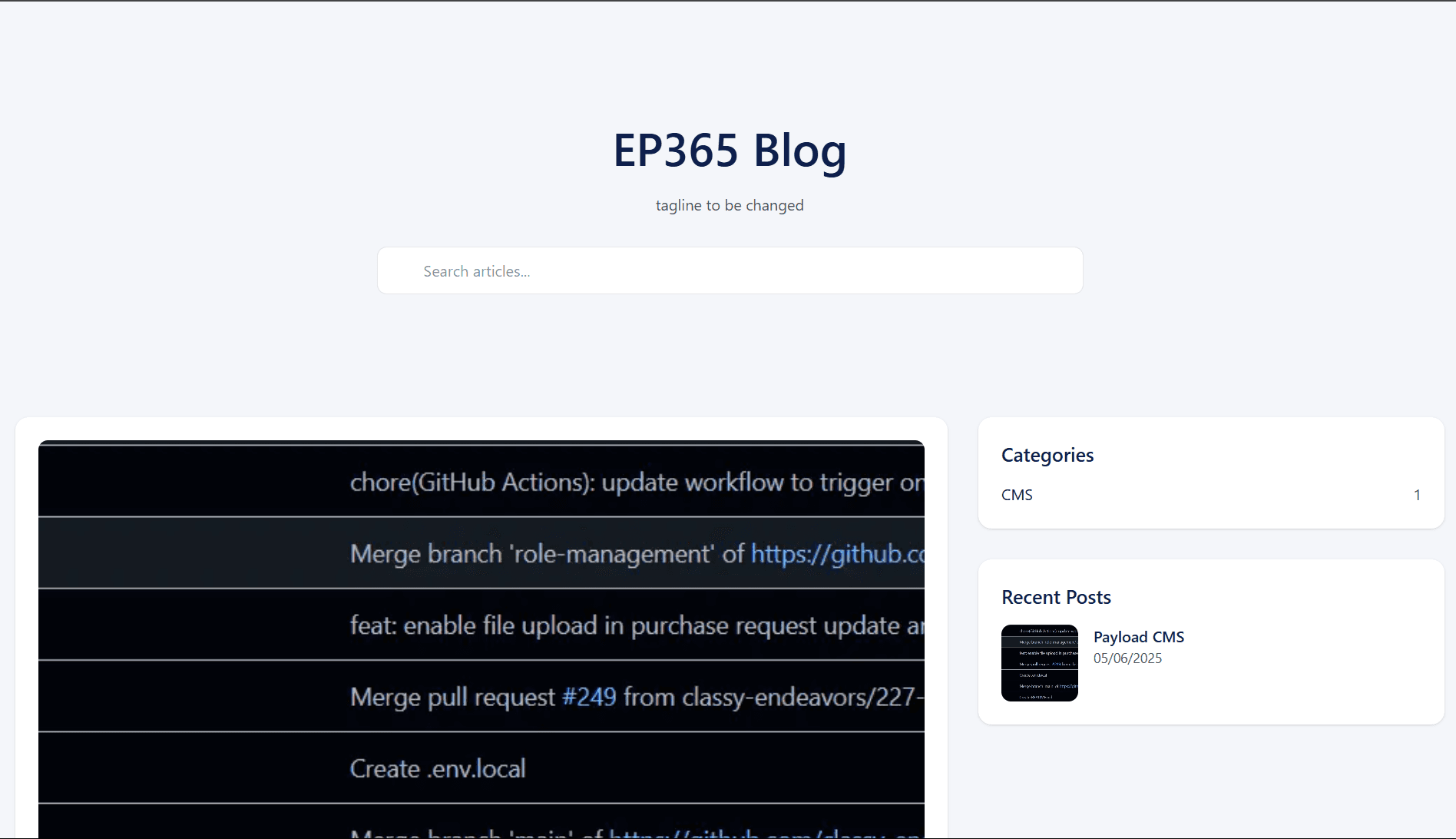
Featured Image: testing with Digital Ocean
What is Payload? Test
Payload is the Next.js fullstack framework. Write a Payload Config and instantly get:
- A full Admin Panel using React server / client components, matching the shape of your data and completely extensible with your own React components
- Automatic database schema, including direct DB access and ownership, with migrations, transactions, proper indexing, and more
- Instant REST, GraphQL, and straight-to-DB Node.js APIs
- Authentication which can be used in your own apps
- A deeply customizable access control pattern
- File storage and image management tools like cropping / focal point selection
- Live preview - see your frontend render content changes in realtime as you update
- Lots more
No matter what you're building, Payload will give you backend superpowers. Your entire Payload config can be installed in one line into any existing Next.js app, and is designed to catapult your development process. Payload takes the most complex and time-consuming parts of any modern web app and makes them simple.
Open source - deploy anywhere, including Vercel
It's fully open source with an MIT license and you can self-host anywhere that you can run a Node.js app. You can also deploy serverless to hosts like Vercel, right inside your existing Next.js application.
Code-first and version controlled
In Payload, there are no "click ops" - as in clicking around in an Admin Panel to define your schema. In Payload, everything is done the right way—code-first and version controlled like a proper backend. But once developers define how Payload should work, non-technical users can independently make use of its Admin Panel to manage whatever they need to without having to know code whatsoever.
Even in spite of how much you get out of the box, you still have full control over every aspect of your app - be it database, admin UI, or anything else. Every part of Payload has been designed to be extensible and customizable with modern TypeScript / React. And you'll fully understand the code that you write.
Payload started as a headless Content Management System (CMS), but since, we've seen our community leverage Payload in ways far outside of simply managing pages and blog posts. It's grown into a full-stack TypeScript app framework.
Large enterprises use Payload to power significant internal tools, retailers power their entire storefronts without the need for headless Shopify, and massive amounts of digital assets are stored + managed within Payload. Of course, websites large and small still use Payload for content management as well.
The biggest barrier in large web projects cited by marketers is engineering. On the flip side, engineers say the opposite. This is a big problem that has yet to be solved even though we have countless CMS options.
Payload has restored a little love back into the dev / marketer equation with features like Live Preview, redirects, form builders, visual editing, static A/B testing, and more. But even with all this focus on marketing efficiency, we aren't compromising on the developer experience. That way engineers and marketers alike can be proud of the products they build.
If you're building a website and your frontend is on Next.js, then Payload is a no-brainer.
Get started with Payload as a CMS using our official Website template:
